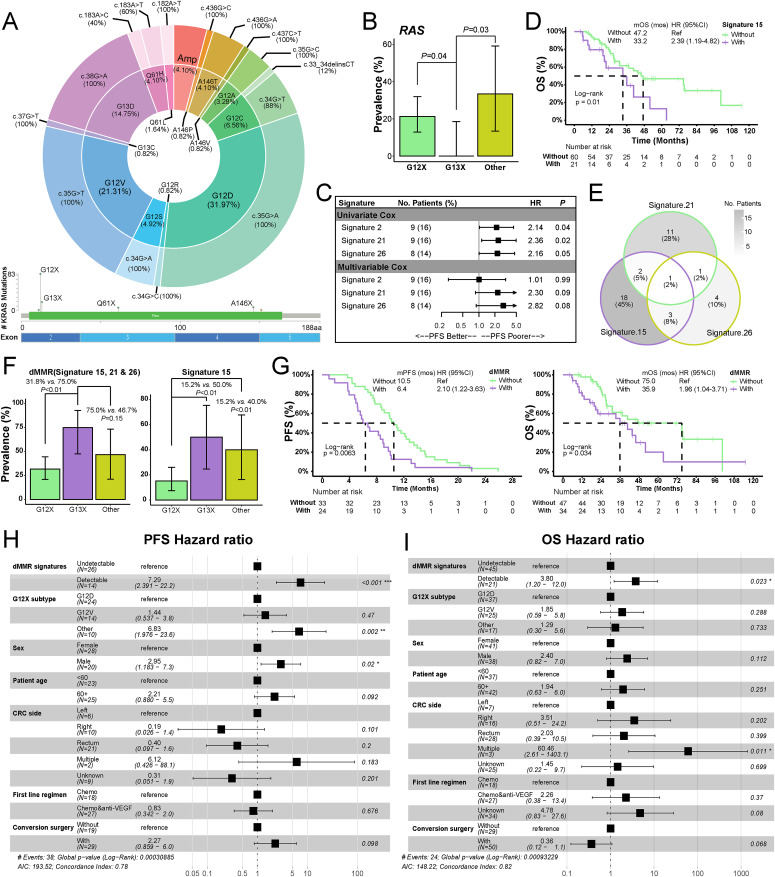
Genetic feature diversity of KRAS-mutated colorectal cancer and the negative association of DNA mismatch repair deficiency relevant mutational signatures with prognosis


KRAS mutations occur in approximately 40% of metastatic colorectal cancer (CRC), leading to disrupted hydrolysis of guanosine triphosphate and tumor cell proliferation.1 Genetic features and clinical outcomes of CRCs depend on KRAS mutation subtypes,2, 3, 4 and molecular biomarkers for prognosis prediction are under development. We supposed that mutational signatures offering an additional layer of genomic information might aid in understanding the differences in treatment efficacy among KRAS-mutated CRCs.
